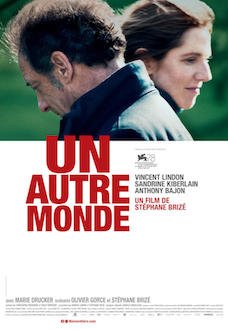Direction: Quentin Dupieux
Country: France
The comedic style of prolific French director Quentin Dupieux can often oscillate between the amusingly absurd and the frustratingly inconsequential. While Daaaaaali! (2023) fell short of convincing, The Second Act emerges as a surprising, satirical triumph. With its playful mise en abyme and elaborate form, the film delves into the world of cinema, where actors revolt against a script they deem mediocre. To make everything more insane, they are being directed by artificial intelligence, which also wrote the script.
The stellar and assured cast—Léa Seydoux, Vincent Lindon, Louis Garrel, Raphaël Quenard, and Manuel Guillot—are in complete control, and the story gains perspective and weight in their capable hands. The real fun of the film lies in its blurring of boundaries between representation and reality, leaving viewers guessing as the layers of fiction intertwine and collapse. Even lacking full dramatic meaning, it sneaks up on you. Yet, you should doubt everything you see and hear.
Unapologetically, Dupieux skewers the egos and absurdities of the film industry, tackling issues such as homophobia, technology's encroachment on creativity, and the tension of strained relationships—all with his trademark irreverent humor. The Second Act demands to be seen, preferably with an audience that doesn't know what it's in for. It’s the kind of cool and kooky narrative that leaves you walking out of the theater feeling like you've seen something special, even if you can't quite figure out what that ‘special’ was.
The film owes everything to its gifted actors coping with the provocative ideas of a script that becomes a therapeutic trust exercise of their own. This ferocious, dichotomous masquerade is never boring.






